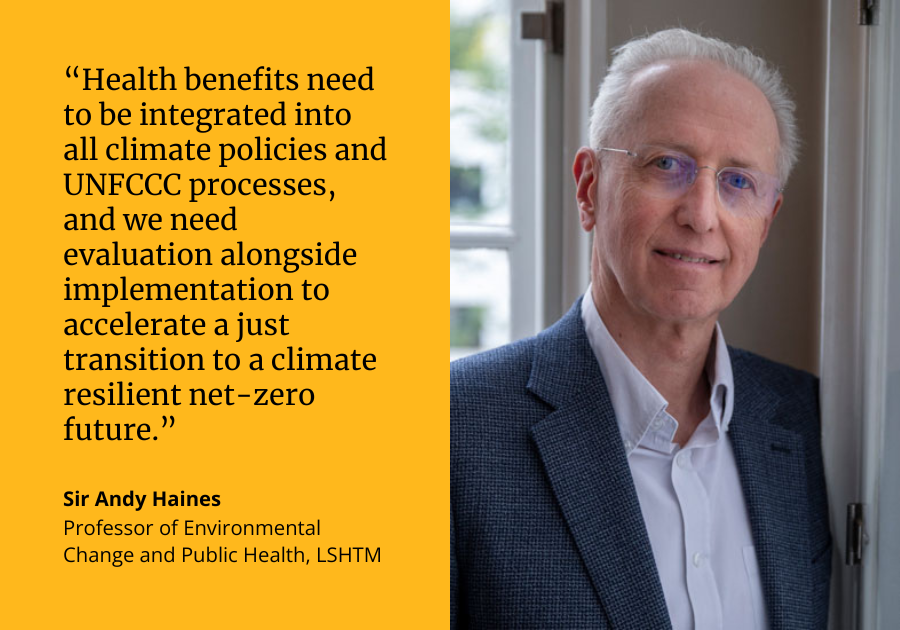LSHTM at COP29: Overwhelming evidence on health gains from cutting emissions must drive action
21 November 2024 London School of Hygiene & Tropical Medicine London School of Hygiene & Tropical Medicine https://lshtm.ac.uk/themes/custom/lshtm/images/lshtm-logo-black.png
Moving towards a net zero economy provides huge opportunities for health, including through cleaner air from fossil fuel phase out, healthier more sustainable diets, and increased physical activity levels, leading climate and health expert Professor Andy Haines has told COP29.
In a speech at the 29th United Nations Climate Change Conference, Professor Haines, Co-Chair of the Pathfinder Initiative and Professor of Environmental Change and Public Health at the London School of Hygiene & Tropical Medicine (LSHTM), said: “Cutting greenhouse gas emissions across all sectors can bring very large benefits to health in the near-term.
“Health benefits need to be integrated into all climate policies and UNFCCC processes, and we need evaluation alongside implementation to accelerate a just transition to a climate resilient net zero future.”
Professor Haines presented evidence from the Lancet Pathfinder Commission report at an event on “Maximising health co-benefits: linking climate action to public health gains”, hosted by the World Health Organisation (WHO) during the Alliance for Transformative Action on Climate and Health (ATACH) day at the Health Pavilion.
His keynote speech was part of one of a wide range of events at this year’s conference where LSHTM experts have called for more ambitious, evidence-based climate policy and action to protect and promote health.
Speaking at a panel on “Climate Change and Health: Crafting Policies for Africa's Urban Future”, hosted at the OECD COP29 virtual pavilion, Dr Sarah Whitmee, Assistant Professor at LSHTM also highlighted the opportunity for climate and health action, citing findings from the Pathfinder Commission report and wider Pathfinder Initiative.
Dr Whitmee said: “Evidence shows that there are significant opportunities for switching to low carbon options in sectors such as energy, food and transport in ways that improve health and equity. Integrating the natural environment through nature-based solutions can also provide mitigation benefits while buffering against climate impacts.”
As COP29 enters its final days, LSHTM researchers are also looking ahead to COP30, identifying opportunities for centring health in the climate agenda beyond this COP, and working with partners globally to drive action towards a healthier, more sustainable future.
Read the full piece on the Pathfinder Initiative website.
If you enjoyed this article and would like to build a career in global health, we offer a range of MSc programmes covering health and data, infectious and tropical diseases, population health, and public health and policy.
Available on campus or online, including flexible study that works around your work and home life, be part of a global community at the UK's no.1 public health university.